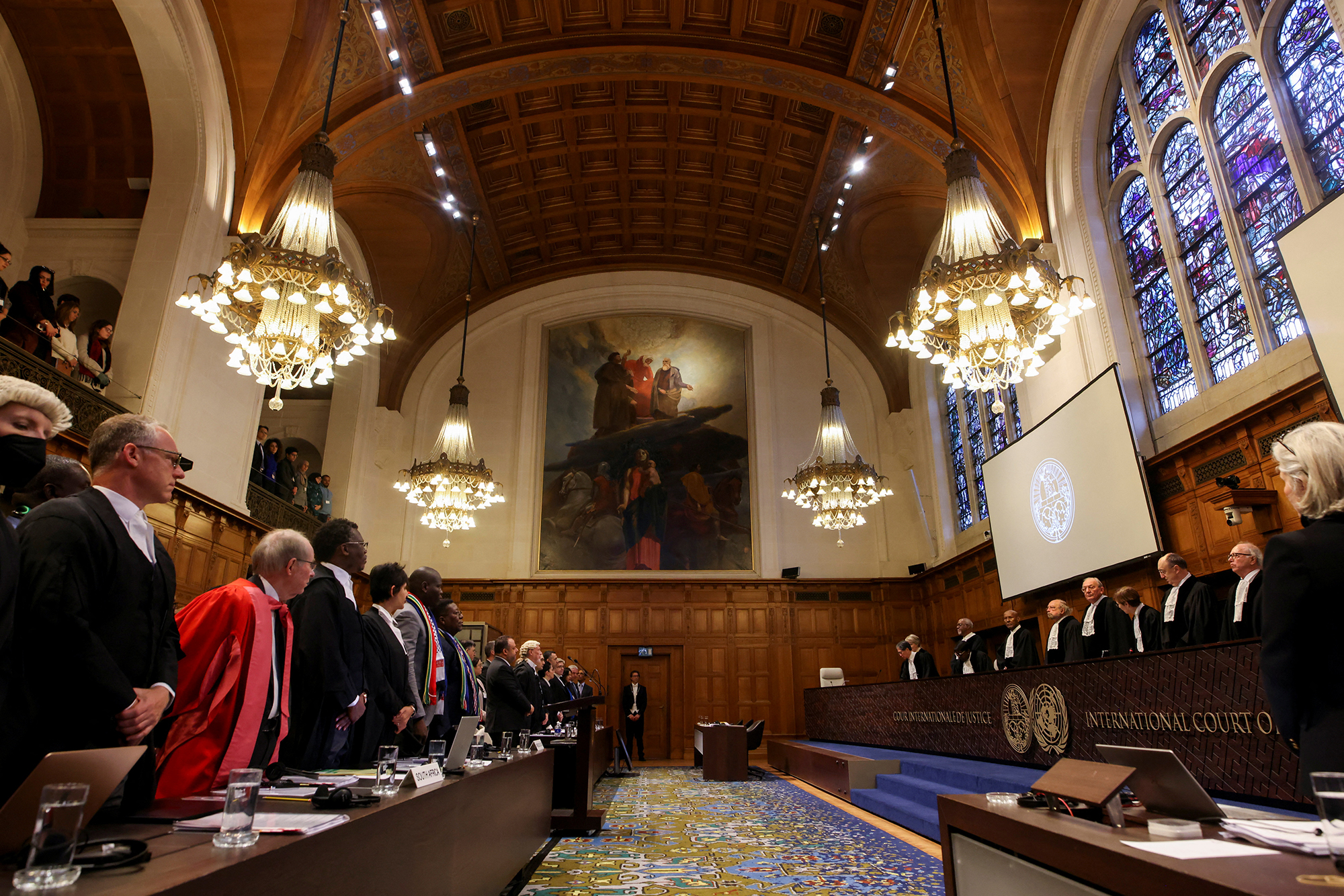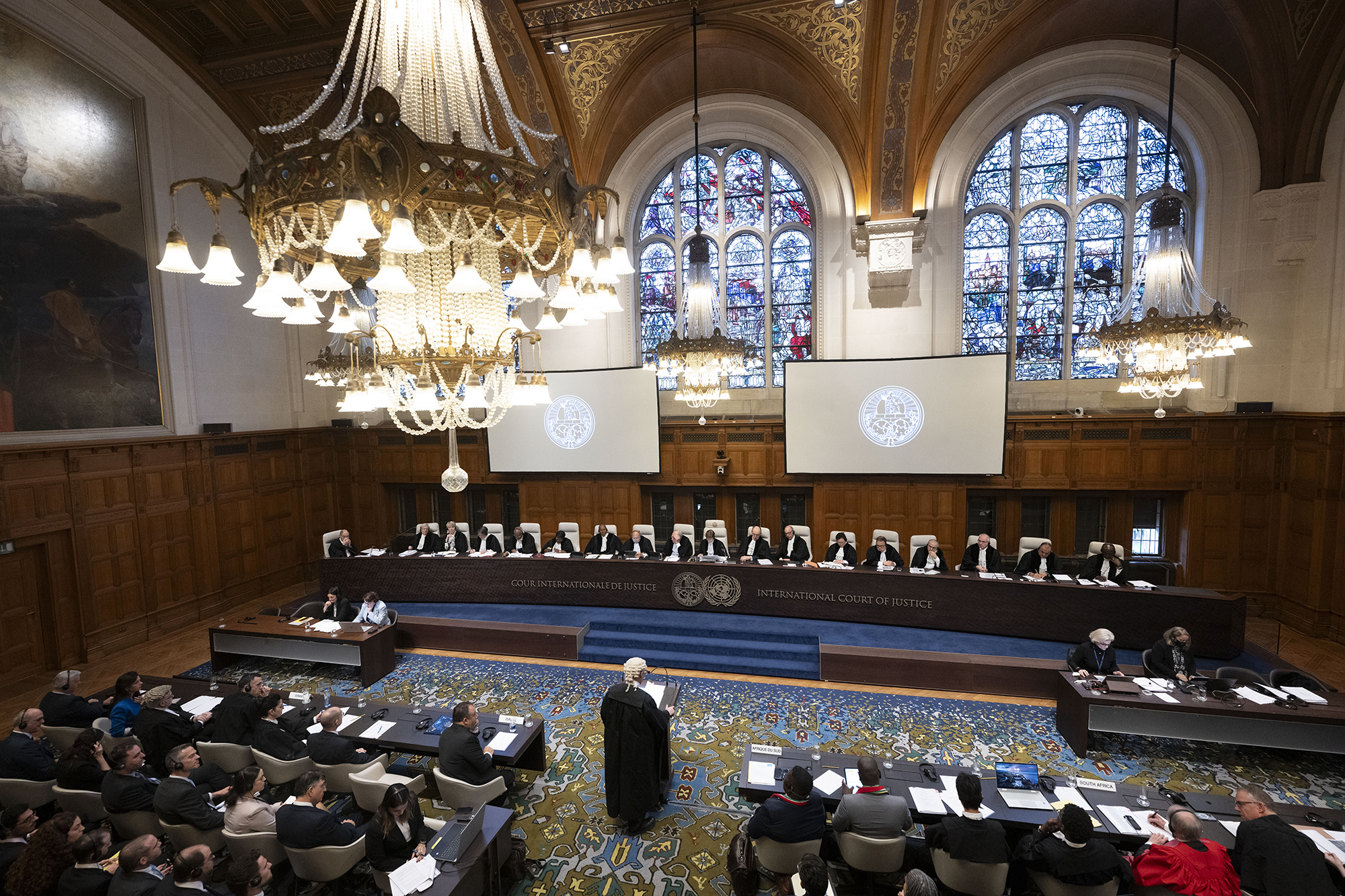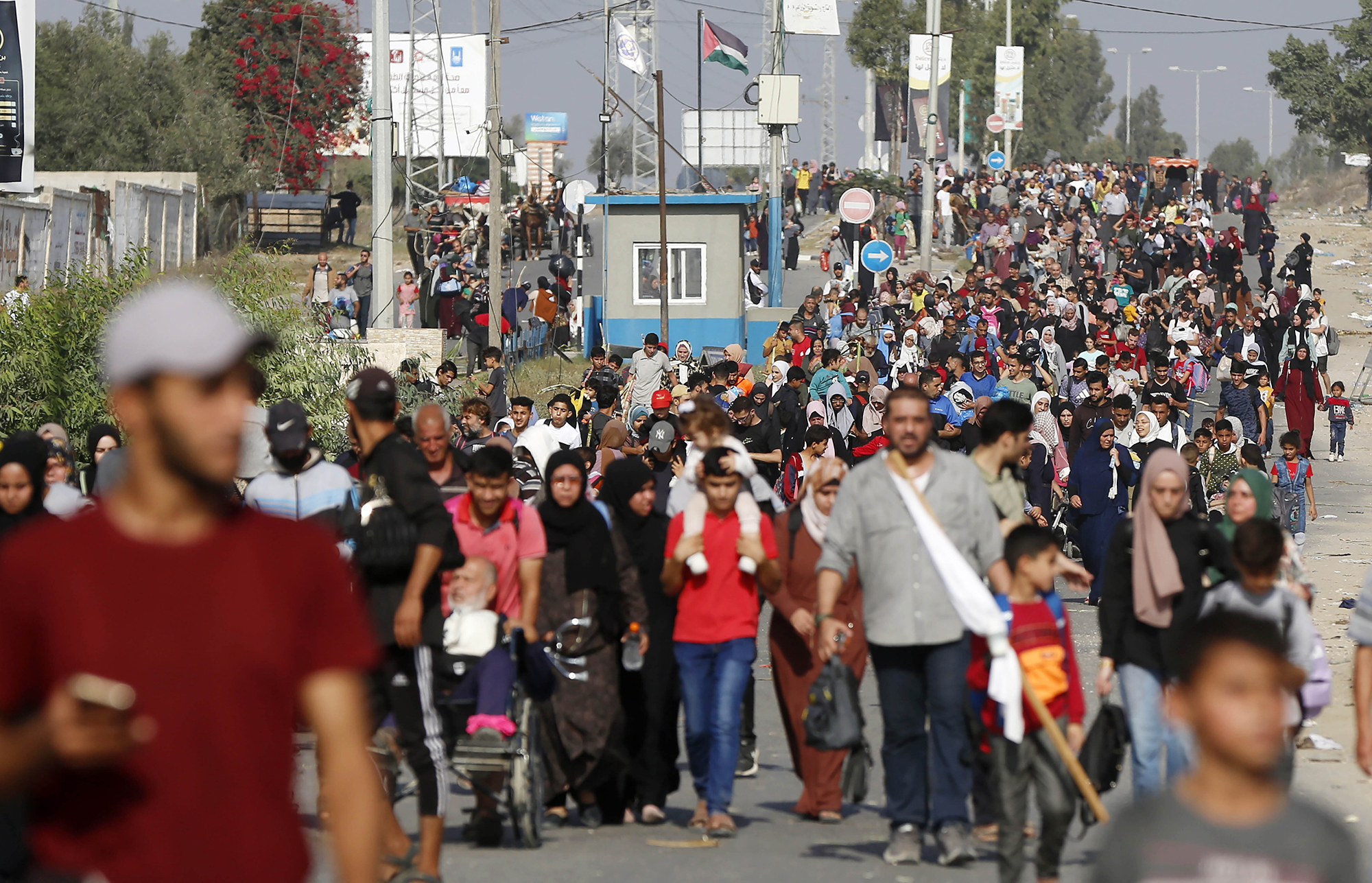Germany jumps to the defense of Israel
Germany to intervene at ICJ in support of Israel
https://www.thejc.com/news/world/germany-to-intervene-at-icj-in-support-of-israel-poup9bno
Government officials say they oppose the ‘political instrumentalisation’ of the Genocide Convention against the Jewish state.
The German government does not believe Israel is committing genocide and will intervene as a third party at the International Court of Justice in defence of the Jewish state, the country announced earlier today.
https://verfassungsblog.de/why-germany-should-join-sides-with-israel-before-the-icj-in-its-defense-against-south-africas-accusation-of-genocide/
Self defense or genocide?
https://www.lto.de/recht/hintergruende/h/voelkermord-genozid-palaestina-igh-verhandelt-antrag-von-suedafrika-hamas-krieg/
What does international law say about self defense
https://www.justia.com/international-law/use-of-force-under-international-law/
The Use of Force in Self-Defense
Article 51 of the UN Charter acknowledges self-defense as an exception to the prohibition against the use of force. This provision explicitly allows a state to use force in response to an armed attack by another state. UN members must report actions taken in self-defense to the UN Security Council. Article 51 has been interpreted to incorporate the inherent rules of self-defense under customary international law, which provide that self-defense must be necessary and proportionate to the aggression.
When a state faces an imminent attack, it may have a right to act in anticipatory self-defense. Article 51 and other provisions of the UN Charter do not address this situation. However, customary international law recognizes the right of anticipatory self-defense when an armed attack is imminent and inevitable. If an attack is possible but not imminent, a state probably cannot launch a pre-emptive strike.
Israel’s War in Gaza is Not a Valid Act of Self-defence in International Law
https://opiniojuris.org/2023/11/09/israels-war-in-gaza-is-not-a-valid-act-of-self-defence-in-international-law/
Israel captured the Palestinian Gaza Strip and West Bank from, respectively, Egypt and Jordan, in the 1967 war it launched against these two states and Syria.* It claimed it was acting, pre-emptively, in self-defence against these states. The war was over, with Israel victorious, after six days. Despite that, and Israel subsequently entering into peace treaties with Egypt and Jordan, Israel maintained control of the captured territories through a military occupation—a continuation of the use of force that enabled their capture—in what has now been over half a century, in defiance of calls by the UN General Assembly to end this.
Israel’s removal of settlements and redeployment of its military presence as part of the operation of a land, sea and air blockade of the Gaza Strip, as well as its Oslo-accords-based allowance of qualified components of Palestinian self-administration in certain areas of the West Bank, amounted, ultimately, to a reconfiguration, not a partial ending, of this military occupation. It continues to occupy both the Gaza Strip and the West Bank, because both territories remain subject to its continued overall military control.
Israel’s 1967 war was illegal as a matter of the international law on the use of force, the jus ad bellum—even, for the sake of argument, assuming the contested matter of Israel’s claim that it feared an attack from its three neighbours, states cannot lawfully use force in self-defence pre-emptively. Moreover, even if it had been lawful on this basis, the justification ended with Israel’s defeat of the three states. The standard justificatory requirements of the ad bellum test continue to apply to the occupation as itself a continuation of the use of force, and the test would not be met. Either way, then, Israel’s use of force through the occupation with respect to the Gaza Strip and the West Bank has been illegal since 1967.
What even accepting Israel’s own (invalid) legal justification was only lawful for six days has existed for fifty-six years. Given that the Palestinian people have a right to self-determination in international law, Israel has been obliged to terminate this use of force immediately, and every day it has continued, it has been an illegal use of force—an aggression—as a matter of the jus ad bellum, and a violation of this right of self-determination (see here, here, and here).
Israel’s failure to end the occupation gives rise to a right to resist in international law on the part of the Palestinian people. This is equivalent to the right that the Ukrainian people have to resist, and the right the Ukrainian state has to use force in self-defence against, Russia’s current war, including its occupation and purported annexation of certain areas, in Ukraine. The right does not justify the intentional targeting of civilians, or indiscriminate attacks that risk harming civilians, or the kidnapping of civilians, all of which are illegal in terms of being outside what is permitted by the right itself, and also illegal as violations of international humanitarian law, international human rights law, and international criminal law.
In this context, approaching Israel’s current military action in Gaza as if it is an isolated incident of the use of force, and asking whether Israel has a right to self-defence in international law justifying this action, is to fundamentally mischaracterize the situation. Israel’s current action is actually a re-configuration of the existing use of force it has exercised, in the form of the blockade (with episodic bombing and land incursions) and before that in its original boots-on-the-ground, and settlements, manifestation, adding new means and methods. To say that Israel has somehow a right to do this new, amplified form of an existing use of force in self-defence because of violent acts of resistance to the earlier form of the same use of force, even when such acts are illegal because they target civilians, and/or are indiscriminate attacks that risk harming civilians, and/or involve the kidnapping of civilians, is circular logic. The starting point for determining the legality of Israel’s current action has to be the ongoing use of force of which it is but the latest manifestation, and the question of whether that ongoing use of force was legally justified prior to recent events.
Israel never even claimed it captured the Gaza Strip and the West Bank in 1967 because of threats emanating from the Palestinian people there. If there was no original lawful basis for it to use force then, for that reason or any other, there cannot then be a basis to continue the use of force in response to violent acts of Palestinian resistance to the occupation. A justification for a new phase in an ongoing illegal use of force cannot be constructed solely out of the consequences of violent resistance to that illegal use of force. Otherwise, an illegal use of force would be rendered lawful simply because those subject to this force violently resisted it—a perverse outcome.
None of this means that the deliberate targeting of civilians, or indiscriminate attacks that risk harming civilians, or the taking of civilian hostages, are legally justified; as indicated, these are illegal. But such illegal actions do not justify, legally, the continuation and, within this, the ratcheting up, of Israel’s use of force in the Gaza Strip and the West Bank, given that this use of force is illegal.
The article continues with examples, drawing parallels with WW2, Ukraine and further examination of the Oslo Accords.
Another take on the subject
https://www.jurist.org/commentary/2023/12/7-10-the-question-of-israels-right-to-self-defense-under-international-law/
....
The primary objective of self-defense, as per Article 51, is to halt and repel an armed attack, including the possibility of expelling the aggressor if they have invaded the victim state’s territory. However, complexities arise when the attack has ceased, and the victim state seeks to defend itself against potential future threats. In such situations, the use of force can have preventive, punitive, deterrent, or combined purposes, leading to varied justifications and implications.
Distinguishing between “armed reprisals“ and “legitimate self-defense” actions involves several critical factors. One significant element is the absence of an armed attack, which might not meet the threshold required for a legitimate act of self-defense. Additionally, the punitive intent behind an action and the timing of the response are crucial in differentiating between a lawful act of self-defense and an unlawful armed reprisal. Despite the formal prohibition of armed reprisals, instances resembling such actions continue to occur, with involved states often justifying them as defensive measures. This disparity between formal rules and state practices creates challenges in defining the “legitimate aims and proportional use of force” in the “right to self-defense” within the scope of international law.
Within the notion of the “right to self-defense,” there are different theories. One theory, known as the “halting and repelling theory,” suggests that the use of force in self-defense is limited to stopping and repelling the ongoing armed attack. Another theory, the “trigger theory,” argues that once an armed attack has occurred, the victim state can defend itself against the aggressor and its potential threats, regardless of the attack’s scale. The “future attack theory” suggests that a state can use force not only to respond to the ongoing attack but also to prevent future attacks, even if they are not imminent. These theories reflect the ongoing debate about the legitimate aims and proportionality in self-defense under international law.
However, the question of whether self-defense is justified in response to an armed attack, especially when it stems from an armed group rather than another state, and whether the attack must materialize to legally invoke self-defense, remains a complex issue under debate among scholars. In the recent conflict between Israel and Hamas, firstly it is imperative to understand the geopolitical dynamics between the two entities. A critical consideration lies in the fact that a state (Israel) cannot maintain control over the territory (Western Bank and Gaza) it occupies while simultaneously launching military attacks because the occupied territory is “foreign” and poses an external national security threat. So, can the “right to self-defense” be exercised by the occupant (Israel) wherein it is already using police force to maintain law and order?
Under international law and community, the West Bank and the Gaza Strip have been duly recognized as militarily occupied territories since 1967. Israel, as the occupant, has the right to protect itself and its citizens from attacks by Palestinians within these territories. However, Israel also has a responsibility to maintain law and order, ensuring the security and well-being of the occupied population, as outlined in Regulation 43 of the Regulations concerning the Laws and Customs of War on Land. This legal framework allows the use of force for law enforcement purposes but emphasizes the need to prioritize civilian safety and use lethal force only as a last resort. These principles distinguish the right to self-defense from the right to police, both of which are governed by the laws of armed conflict and differ from peacetime human rights law regulations.
Under international law, once the conflict takes place, jus ad bellum presides over it. Thus, following the Regulations concerning the Laws and Customs of War on Land, when an occupation is already in place (Western Bank and Gaza Strip), the occupying state (Israel) cannot use militarized force in response to an armed attack; it can only use police force to restore order. Scholar Noura Erakat (Associate Professor at Rutgers University) in the context of Israel’s right to self-defense argued upon the importance of differentiation between “self-defense” and “defense” and asserted that the ambit of “self-defense is narrower and should not be confused with general notions of defense.” If Israel’s claim of the right to self-defense is taken as valid under international law, then it would lead to the legitimacy of the authority of the occupant state (Israel) to use its military along with police over the occupant terrority (Western Bank and Gaza Strip). Thus, it is unclear how Israel as an occupant can claim the right to self-defense when it has been controlling, policing and making settlements in the OPT since 1967. The context of Hamas’s retaliation, named Operation Al-Aqsa Flood, underscores their perception of defending Palestinian interests in response to Israel’s actions, particularly the raid and attack at the Al-Aqsa Compound (Temple Mount) in the Old City of Jerusalem. This complex situation challenges Israel’s portrayal as a victim state, raising questions about the legitimacy of its claim to self-defense in the ongoing conflict.
Arguendo, there exists Israel’s right to self-defense against Hamas attacks. However, the same right has to respect International Humanitarian Law (‘IHL’) and meet the principle of proportionality. Proportionality in jus ad bellum, a fundamental concept in international law, necessitates a careful evaluation of the legitimate ends pursued through the use of force and the necessity of that force to achieve these objectives. At its core, proportionality requires determining whether the force used aligns with the legitimate ends sought. The term “necessary” holds a pivotal role, encompassing two distinct interpretations: first, the availability of non-forcible means to address an armed attack, and second, the rational connection between the force used and the legitimate ends of self-defense. The proportionality test involves three key questions: first, whether the restriction in question aims to achieve legitimate ends; second, whether there are less restrictive means available to achieve the same ends; and third, whether the harm caused to the protected right by the restriction outweighs its benefits.
So with respect to IHL principles and proportionality, Israel was obligated to refrain from using starvation as a tactic against Gaza’s civilians, minimize harm to civilians and civilian infrastructure, and allow the return of displaced individuals post-conflict. However, in contrast, Israel closed all borders and severed essential services like electricity, water, and food supplies, as well as conducting airstrikes on densely populated areas and vital infrastructure. Israel’s armed forces launched air strikes on residential buildings, including apartments in the Rimal neighborhood in Gaza City; mosques; refugee camps, such as Jabalia Refugee Camp and Nuseirat Refugee Camp); and the UNRWA School in Central Gaza’s al-Maghazi refugee camp.
....
Israel’s attacks, which caused a humanitarian catastrophe by collectively punishing the entire population of Gaza, failed to meet the standards outlined in the UN Global Counter-Terrorism Strategy. The disproportionate use of force, coupled with the dehumanizing rhetoric used against Palestinians and the manipulation of essential resources such as food, stands in violation of the proportionality requirement of the right to self-defense, IHL, and International Human Rights Law (IHRL). The Israeli Defense Minister’s order to deliberately siege food, electricity, and fuel as a wartime strategy violates IHL and constitutes a “war crime” under Article 8(2)(b)(xxv) of the Rome Statute, and could also potentially satisfy the legal criteria for the crime against humanity of inhumane acts (Article 7(1)( k )) of the Rome Statute. A complete siege, especially for an extended duration, is prohibited by IHL under Article 54(1) of the First Additional Protocol to the Geneva Conventions. This principle is also emphasized in Article 23 of the Fourth Geneva Convention and Article 70 of Additional Protocol I. Furthermore, the extensive damage caused to civilian infrastructure, including schools, hospitals, and media outlets, highlights the disproportionate nature of the military operations and violates Article 57 of the Additional Protocol I to the Geneva Conventions.
IHL mandates the protection of civilian populations, medical personnel, journalists, and cultural assets during armed conflicts, regardless of the party’s role as an aggressor or defender. Indiscriminate attacks, which fail to differentiate between civilians and combatants, are strictly prohibited in all types of armed conflicts, as outlined in various articles of Article 48 of the First Additional Protocol to the Geneva Conventions, Art. 51(1) and (2) of Additional Protocol I, and Article 13(1) of the Additional Protocol II to the Geneva Conventions. Thus, Israel’s indiscriminate targeting of densely populated neighborhoods and civilian facilities raises questions about the whole notion of “necessity” and “proportionality” in the use of force by Israeli authorities in the name of the ‘right to self-defense’ and violates international law and constitutes “war crimes” under the Rome Statute.
TLDR Israel does have the right to repel the attacks and initiate police actions to go after the perpetrators. However what the IDF is doing in Gaza is not covered by self-defense doctrine. No matter how much Israel keeps trying to paint Oct 7 as the starting point.




























































